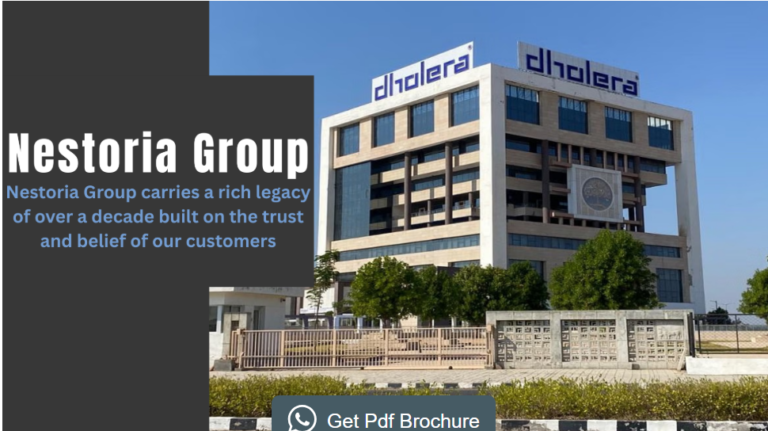In the fast-paced digital age, businesses are constantly seeking ways to streamline operations, enhance collaboration, and ensure timely project delivery. A Customizable Task Management System is one of the most powerful tools enabling this transformation. By offering flexibility, real-time visibility, and automation, it helps teams organize work, allocate resources, and maintain clear communication across projects. Whether managing small daily tasks or large-scale operations, such systems are revolutionizing how organizations plan, execute, and deliver results.
Understanding Customizable Task Management Systems
A customizable task management system goes beyond traditional to-do lists or fixed project trackers. It is a dynamic platform that allows organizations to tailor workflows, dashboards, and task hierarchies according to their unique operational needs.
These systems are designed to adapt to diverse industries — from construction and software development to marketing and manufacturing. They can be customized to fit different project sizes, structures, and goals, ensuring that no process is too complex or too simple to manage efficiently.
Key Characteristics of a Customizable Task Management System
-
Flexible Workflows: Teams can create, modify, and manage workflows that match their operational style.
-
Role-Based Access: Assign specific roles and permissions to ensure clarity and accountability.
-
Task Automation: Repetitive processes like task creation, status updates, and notifications are automated for efficiency.
-
Integration Capabilities: These systems integrate seamlessly with communication tools, CRMs, and other business applications.
-
Data Visualization: Dashboards display real-time insights, helping managers track performance and identify bottlenecks instantly.
The Benefits of a Customizable Task Management System
Enhanced Productivity
Automation and customization work hand-in-hand to minimize time spent on administrative duties. Teams can focus more on strategic tasks that drive growth rather than manual coordination.
Improved Collaboration
Modern task management systems foster teamwork through shared dashboards, instant updates, and centralized communication channels. Everyone involved stays informed and aligned.
Real-Time Tracking
With transparent project visibility, managers can monitor task progress, deadlines, and resource allocation in real time, ensuring timely completion of goals.
Greater Accountability
Each task has a clear owner, status, and timeline, which creates a sense of responsibility across the team. This transparency helps in building a culture of accountability and trust.
Scalability for All Business Sizes
Whether a company handles a single project or dozens simultaneously, these systems scale effortlessly. Businesses can start small and expand features as their needs grow without disrupting existing workflows.
How Customization Enhances Efficiency
Customization ensures that the software adapts to your business — not the other way around. Instead of forcing teams to change their work habits to fit a rigid system, a customizable task management system evolves with your organization’s growth.
Teams can create custom task fields, adjust dashboards, and design workflow templates that reflect their priorities. This flexibility increases adoption across departments since every team member can work within an interface that fits their specific requirements.
Example of Real-World Customization
-
Marketing Teams: Can use task boards to plan campaigns, assign creative tasks, and track deadlines.
-
IT Teams: Can manage bug reports, feature requests, and system updates efficiently.
-
HR Departments: Can automate onboarding workflows, performance reviews, and training schedules.
The Role of Automation in Modern Task Management
Automation lies at the core of modern task management. By automating repetitive tasks such as notifications, report generation, and task creation, teams can focus on creativity, problem-solving, and execution.
For example, automated reminders can ensure deadlines are met, while auto-generated performance analytics help leaders evaluate progress without spending hours compiling data. This reduces delays, improves coordination, and keeps projects on track effortlessly.
Integrating Task Management with Other Business Systems
The power of a task management system multiplies when integrated with other business tools. Connecting it with CRMs, financial software, and communication platforms creates a unified ecosystem where information flows freely across departments.
This integration ensures that project updates are instantly visible to all stakeholders. Teams can share data, track resources, and manage client communications without switching between multiple tools — saving time and increasing efficiency.
Building a Culture of Collaboration Through Technology
Beyond organization and efficiency, customizable systems play a key role in nurturing collaboration. Centralized workspaces, shared calendars, and live comment sections keep everyone aligned, even in remote or hybrid environments.
Team members can share files, track updates, and discuss changes in real-time, ensuring no information gets lost in emails or messages. The result is smoother coordination, improved communication, and a more cohesive work culture.
How Customizable Systems Support Business Growth
As businesses expand, managing projects, clients, and teams becomes more complex. A customizable task management system scales alongside growth, accommodating new departments, additional workflows, and increased data loads.
It also offers managers deep insights into operations, helping them make informed decisions. Data-driven reports, analytics dashboards, and performance metrics enable leaders to identify areas of improvement and forecast future needs with confidence.
Expanding Efficiency with Multi-Project and Team Management
In today’s interconnected business world, organizations rarely operate on a single project at a time. Managing multiple projects, diverse teams, and overlapping timelines can be overwhelming without the right technology. That’s where Multi-Project and Team Management solutions come in.
These advanced features empower businesses to oversee all ongoing projects from a unified dashboard. Managers can allocate resources effectively, monitor team workloads, and ensure seamless collaboration across departments. It’s a complete ecosystem that balances multiple objectives without confusion or delay. Combined with automation and customization, it gives organizations a competitive edge by delivering consistent results on time and within scope.
The Future of Work: Smarter Systems for Smarter Teams
The integration of customization, automation, and advanced analytics marks the next evolution in digital work management. As AI continues to evolve, task management systems will become even more predictive — analyzing patterns, suggesting improvements, and automating decision-making processes.
Organizations that adopt these tools early are positioning themselves for long-term success. They gain better control, agility, and visibility into every level of their operations, ensuring they stay ahead in a constantly evolving marketplace.
Conclusion: Empowering Teams for Tomorrow
A customizable task management system is not just software — it’s the backbone of efficient, transparent, and future-ready organizations. It simplifies complexity, strengthens collaboration, and drives productivity across all levels. When combined with multi-project and team management capabilities, it becomes a complete operational powerhouse.
By embracing these innovations, businesses can confidently navigate challenges, deliver consistent performance, and build a culture where every task, project, and team thrives in perfect harmony.



